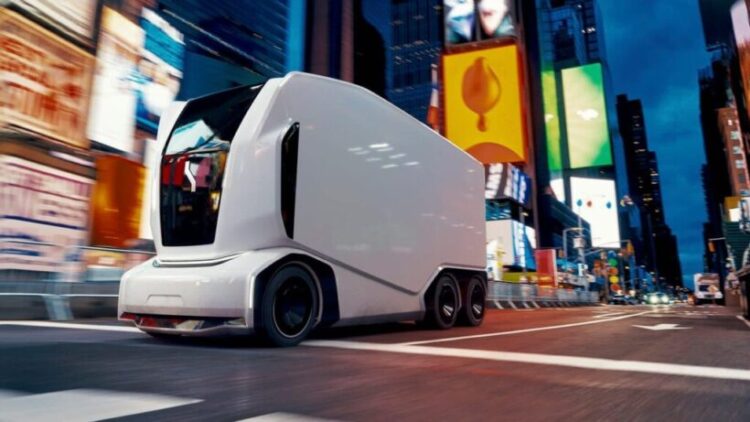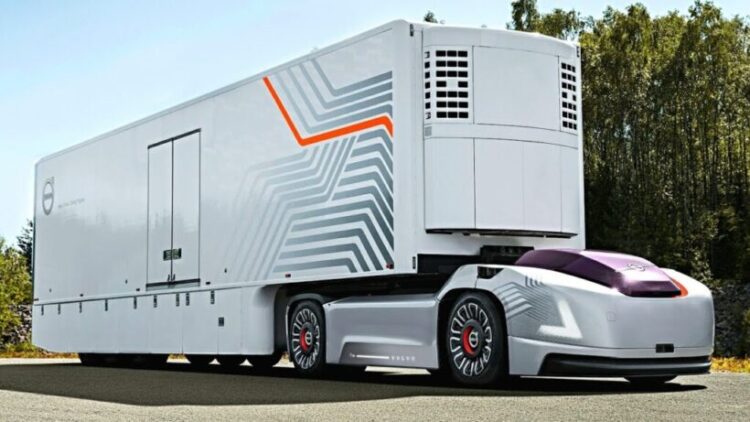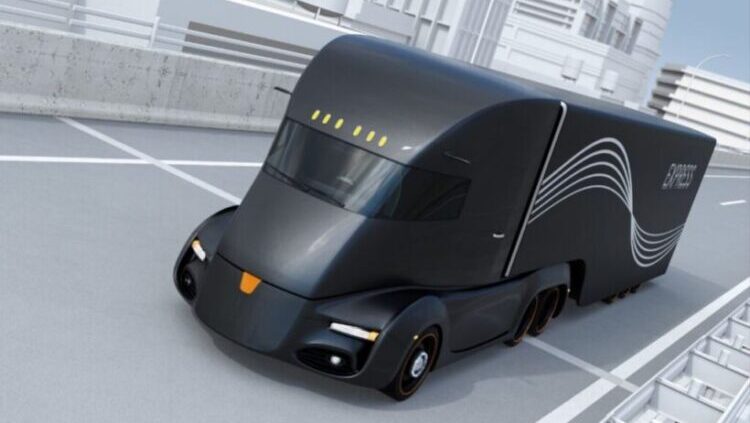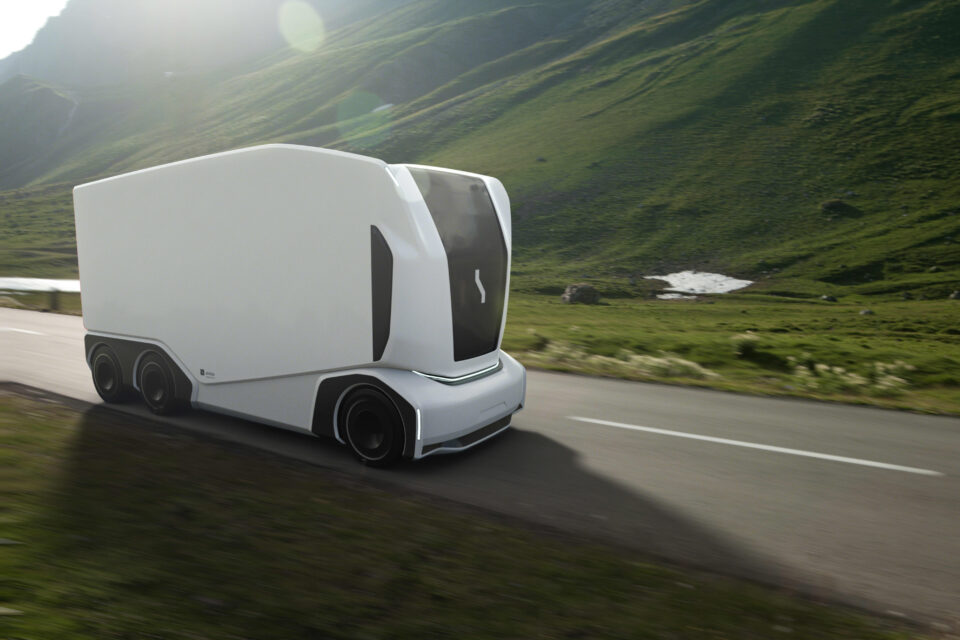The logistics and supply chain management world is on the cusp of a transformative revolution, and the prospect of autonomous trucks stands at its forefront. These self-driving behemoths of the road promise to reshape how goods are transported, stored, and distributed, with far-reaching implications for efficiency, safety, and cost-effectiveness.
In an era where speed, precision, and sustainability are paramount in supply chain operations, autonomous trucks emerge as a promising solution to the challenges faced by the industry.
The Current State of the Supply Chain
Today’s supply chain is a complex web of processes, relying heavily on human-driven trucks to move goods from manufacturers to distributors and retailers. While the existing system has served us well for decades, it has limitations. Human drivers are subject to fatigue, rest requirements, and the potential for errors.
These factors contribute to inefficient route planning, long transit times, and increased operational costs. Moreover, as the demand for faster and more reliable deliveries grows, the current supply chain framework needs to work on keeping up.
The Promise of Autonomous Trucks

The emergence of autonomous trucks offers a glimpse into a future where many of these inefficiencies and challenges can be overcome. These self-driving vehicles are equipped with sensors, cameras, and advanced algorithms that enable them to navigate highways, make real-time decisions, and communicate with other vehicles and infrastructure.
The promise of autonomous trucks lies in their potential to revolutionize supply chain logistics by enhancing efficiency, safety, and cost-effectiveness. With the ability to operate 24/7 without rest, autonomous trucks can dramatically reduce downtime and optimize route planning. This translates to faster and more reliable deliveries, reduced transit times, and lower operational costs.
Enhanced Efficiency and Productivity
One of the most significant advantages of autonomous trucks is their potential to enhance efficiency and productivity in supply chain operations. Unlike human drivers, who are subject to rest requirements and time constraints, autonomous trucks can operate continuously, making the most available time. They are not affected by fatigue or the need for breaks, which often lead to unnecessary delays in transit.
With real-time data analysis and route optimization, these self-driving vehicles can choose the most efficient paths, avoid traffic congestion, and make decisions that minimize transit times. Such enhancements in efficiency can lead to substantial improvements in supply chain productivity, enabling companies to meet the growing demands of consumers for faster and more reliable deliveries.
Improved Safety

Safety is a paramount concern in the trucking industry, and autonomous trucks have the potential to make significant strides in this area. Human error is a leading cause of accidents on the road, and the introduction of autonomous technology can significantly reduce the likelihood of such incidents.
These vehicles have advanced safety features, including collision avoidance systems and adaptive cruise control, which can react to potential hazards with split-second precision. Moreover, autonomous trucks can communicate with each other and infrastructure, creating a connected and coordinated network of vehicles that can work together to prevent accidents.
With the removal of human error from the equation, the roads become safer for all users, including pedestrians and other motorists, ushering in a new era of road safety.
Cost Reduction
In addition to efficiency and safety improvements, adopting autonomous trucks can significantly reduce supply chain operations costs. Labor costs, representing a substantial portion of trucking expenses, can be significantly reduced as the need for human drivers diminishes.
Autonomous trucks can operate with minimal human intervention, and while some level of oversight and maintenance will still be required, the overall labor costs can be significantly lower. These vehicles are often more fuel-efficient than traditional trucks, thanks to advanced algorithms that optimize speed and route choices.
Lower fuel consumption translates to reduced operating expenses, which can be passed on to consumers through more competitive pricing. These cost savings can improve the profitability of businesses along the supply chain and contribute to overall economic efficiency.
Impact on the Workforce

While the benefits of autonomous trucks are promising, there are concerns about their impact on the workforce, particularly the livelihoods of truck drivers. The widespread adoption of self-driving technology could lead to job displacement for a significant portion of the trucking industry.
However, it’s important to note that autonomous trucks will only partially eliminate the need for human involvement. These vehicles will still require human oversight, maintenance, and intervention in certain situations. Moreover, the growth of autonomous trucks may create new job opportunities in technology development, vehicle maintenance, and remote monitoring.
Trucking companies and industry stakeholders will need to work closely with policymakers and labor organizations to develop strategies for workforce transition and upskilling to ensure a smooth transition into the era of autonomous transportation.
Overcoming Challenges and Obstacles
While the potential benefits of autonomous trucks are straightforward, several challenges and obstacles must be addressed for widespread adoption. Regulatory frameworks and safety standards for autonomous vehicles are still evolving, and there is a need for clear guidelines to ensure the safe operation of these vehicles on public roads.
Technological challenges, such as robust sensor systems and reliable communication networks, also need to be addressed to enhance the reliability and safety of autonomous trucks. Moreover, public perception and acceptance of autonomous technology will play a significant role in its adoption. Ensuring the general public is comfortable sharing the road with self-driving trucks is essential for the technology’s success.
Research and development efforts are ongoing to overcome these challenges, and collaborative efforts between the government, industry, and academia are crucial in paving the way for the widespread adoption of autonomous trucks.
The Future of Autonomous Trucking

Looking ahead, the future of autonomous trucking holds excellent promise. As technology advances, self-driving trucks will likely become integral to the global supply chain. Emerging technologies, such as platooning, where multiple autonomous trucks travel closely together to reduce wind resistance and improve fuel efficiency, have the potential to enhance efficiency and sustainability further.
Artificial intelligence (AI) and machine learning algorithms will continue to refine autonomous systems, making them more responsive and adaptive to real-time road conditions. Predictive analytics may also anticipate potential safety hazards and proactively mitigate risks.
The future of supply chain logistics is set to be more efficient, safer, and cost-effective, thanks to the transformative potential of autonomous trucks.
In conclusion, autonomous trucks have the potential to revolutionize the supply chain by enhancing efficiency, safety, and cost-effectiveness. These self-driving vehicles offer a solution to the challenges faced by the current supply chain framework, from inefficiencies caused by human limitations to safety concerns on the road.
While challenges and workforce implications need to be addressed, ongoing research and development efforts are working toward overcoming these obstacles. As technology advances, integrating autonomous trucks into the supply chain promises a future where goods can be transported faster, safer, and more sustainably, ultimately benefiting businesses, consumers, and the global economy.
The era of autonomous trucking is on the horizon, and its potential to reshape supply chain logistics is revolutionary.

